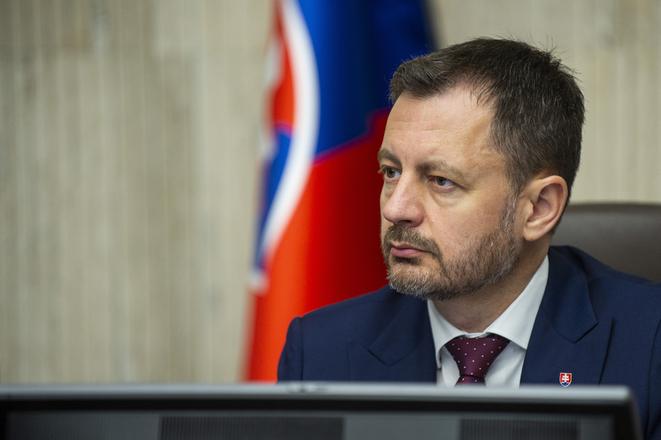Demokrati, a non-parliamentary party led by acting PM Eduard Heger, has been struggling to reach the 5-percent threshold in the polls since its announcement in early March.
The limit is necessary for winning parliamentary seats in the September elections.
In the latest Focus poll, published by the Markíza television channel on April 30, Heger’s party fell to 3.6 percent. In the second half of March, according to Focus, 5 percent would have voted for Demokrati.
The AKO agency found that 4.1 percent would vote for Demokrati in the first half of April, 4.9 percent in the first half of March.
New names
Recently, several well-known faces have joined Heger’s conservative party. These include MPs Jana Žitňanská and Juraj Šeliga. They left the Za Ľudí party at the start of April.
“There are never enough democrats, so I hope more will come on board,” Šeliga said on April 21. “If we don’t come together, we won’t have the numbers to govern.”
Heger announced on May 1 - the day Slovakia joined the EU in 2004 - that people from the emerging Dobrý Deň, Slovensko (Good Day, Slovakia) party were also joining Demokrati: businessman and founder Ján Šubák, businessman Jozef Sýkora, lawyer Martin Javorček, and transport expert Karol Achimský.
Having criticised oligarchs meddling in politics, Heger has welcomed the embrace coming from ‘honorable’ entrepreneurs.
“We can provide tens of thousands of euros from our own reserves, but hundreds of thousands of euros are necessary for a strong campaign,” Heger said on Monday.
The smaller parties Šanca, Zmena Zdola, and Občianska Demokratická Platforma support Demokrati as well.
Irrelevant player
But even though several smaller parties stand by Demokrati, bigger players are avoiding Heger.
Demokrati may, for example, significantly improve their polling figures if the party joined forces with the non-parliamentary and well-established Christian Democratic Movement (KDH). The latter has claimed that it does not mean to create a pre-election coalition with other parties. Recent polls show that 5-7 percent of people would vote for KDH on September 30.
Demokrati could also attempt to steal voters away from the ruling OĽaNO party, which Heger and several others, including acting Defence Minister Jaroslav Naď, left in March.
Political scientist Jozef Lenč has told the JOJ television channel on April 25 that Demokrati has not become a relevant party, and that the party is struggling to conjure an agenda people would finding appealing.
Moreover, most people, 77 percent, do not trust Heger, according to a Focus poll published in April. Only 22 percent trust him. In general, trust in the members of Heger’s government is low.



 Acting PM Eduard Heger on April 12, 2023. (source: TASR - Jakub Kotian)
Acting PM Eduard Heger on April 12, 2023. (source: TASR - Jakub Kotian)